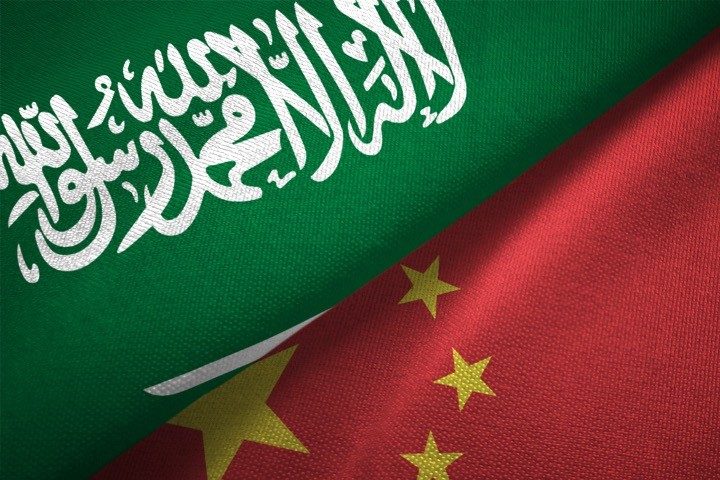
China has notched another major win in its diplomatic campaign to broaden its sphere of influence in Eurasia.
Saudi Arabia’s King Salman has now signed documents making his country a “dialog partner” in China and Russia’s Shanghai Cooperation Organization (SCO), which emphasizes defense and economic collaboration between its members.
As seen in Russian media, Salman also approved vocational training with Russia.
When SCO was formed in 1996, it was composed of China, Russia, Tajikistan, Kazakhstan, and Kyrgyzstan. It has since added India, Uzbekistan, and Pakistan as full members. Other “dialog partners” include Armenia, Azerbaijan, Cambodia, Egypt, Nepal, Qatar, Sri Lanka, and Turkey.
Joint activities between member states have included combating terrorism and drug trafficking and conducting military exercises together to promote regional stability.
Notably, the bloc has in recent years placed an emphasis on cyberwarfare, a concept it has expanded to include information that is morally and culturally harmful.
In addition to joining SCO as a dialog partner, Saudi Arabia is also reportedly interested in joining BRICS, an economic bloc currently consisting of Brazil, Russia, India, China, and South Africa. BRICS has its own bank, payment system, and framework for providing protection against global liquidity pressures.
The news is the latest in a diplomatic winning streak for Beijing. Recently, China brokered a deal that restored Saudi-Iranian relations. Iran also wants to join SCO, having applied for membership in 2021.
China also recently persuaded Honduras to drop its formal relations with Taiwan in favor of relations with Beijing, promising major financial investment in the Central American nation, and strengthened its ties with Argentina.
One of the biggest recent upsets was the move by China and Brazil to ditch the dollar and instead trade in mutual currencies.
This is a major blow to the United States. Washington Post columnist Fareed Zakaria rightfully observed that “The dollar is America’s superpower. It gives Washington unrivaled economic and political muscle. The United States can slap sanctions on countries unilaterally, freezing them out of large parts of the world economy. And when Washington spends freely, it can be certain that its debt, usually in the form of T-bills, will be bought up by the rest of the world.”
By taking the dollar out of the equation, China is taking a powerful stab at U.S. dominance.
Political analyst Timur Fomenko writes that these recent developments show that China’s influence on the world stage is such that attempts to contain it are no longer as easy as Washington hoped:
China has demonstrated that it is a superpower with the ability to steer global affairs in its own direction, a privilege which the US believed was its own exclusive entitlement. Beijing’s peace proposal for Ukraine and the Saudi-Iran normalisation deal caused a shock to the system in Washington. Xi’s visit to Moscow in particular has brought a new balance to the dynamic around the Ukraine conflict and jeopardized hubris-led US miscalculations that it can escalate the conflict to the point of forcing a zero-sum outcome in favour of its own strategic objectives.
…However, US assumptions that China can be comprehensively isolated stem from the hubris of the unipolar experience, which chronically overestimates American power and underestimates China’s position. The past few weeks have shown that isolation is not easy to accomplish, and that despite everything, Beijing retains the ability to shape geopolitics to its own accord. The great game thus continues, and Xi Jinping is likely to have a few more tricks up his sleeve yet.
The U.S. is losing not only the diplomatic and economic races, but also the arms race. The federal government under Biden is making budget cuts that will result in the premature retirement of nearly a dozen ships while also removing missile systems that currently deter Chinese aggression at sea.
All this comes as China, on the other hand, is increasing its building of naval ships.
The Biden budget would cause the loss of 600 vertical missile systems and retire at least 11 ships, while only ordering the building of nine new ones, putting the United States at a numerical disadvantage to Beijing.
Currently, the United States has 294 battle force ships, which is lower than the 355 the country is supposed to have by law. Meanwhile, China has a fleet of 340 ships and is expected to have more than 400 by 2025 — part of a plan for fast growth that also includes supplying its military with a fresh stock of surface combat missiles and guided-missile destroyers.
America’s policymakers are foolishly distracted by issues like LGBT “rights,” to the point where Biden is openly declaring that trans people “shape our nation’s soul,” while the cunning and ruthless leaders in China are outsmarting and outmaneuvering the United States at every turn.




